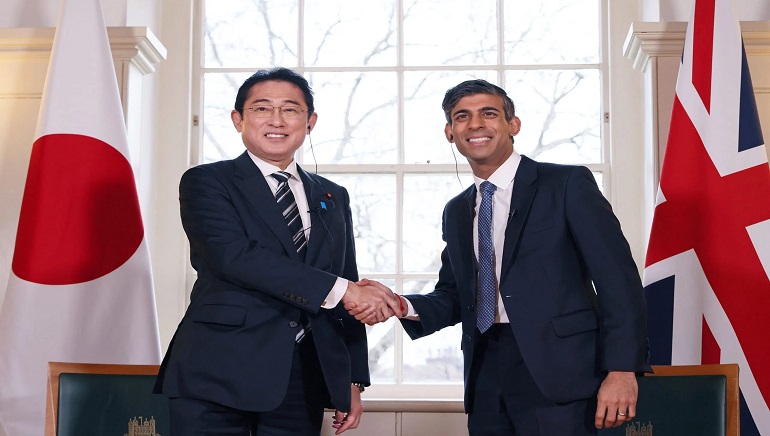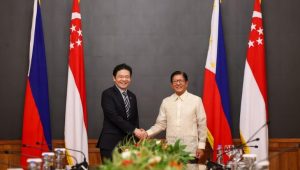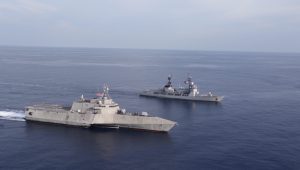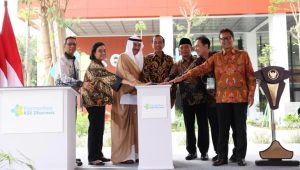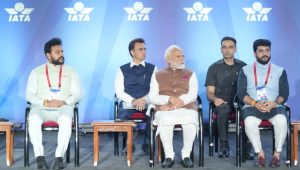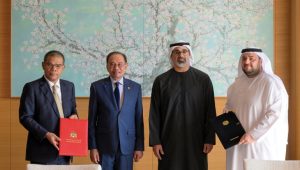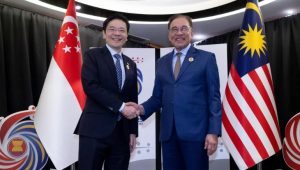On his visit to Japan for the G7 summit, UK Prime Minister Rishi Sunak clinched the Hiroshima Accord for greater UK-Japan economic, security and technology collaboration.
The Hiroshima Accord signed on May 17 will cover agreements on defence, trade and investment, science and technology collaboration, and joint work on tackling global issues like climate change. The new UK-Japan global strategic partnership is also being seen as a counterbalance to Chinese dominance in the region. It includes a Semiconductors Partnership to pursue bold R&D cooperation and skills exchange to boost supply chain resilience in the sector.
The UK also corroborated that its Carrier Strike Group warship will return to the Indo-Pacific in 2025, after a maiden voyage to the region including India in 2021.
Rishi Sunak is the first British Prime Minister to visit Hiroshima – the site of the Second World War atomic bombing. While in Tokyo, he visited a naval base to confirm new UK-Japan defence cooperation, which includes doubling UK troop numbers in forthcoming joint exercises and agreeing on a formal Consult Clause, whereby the UK and Japan commit to consult each other on important regional and global security issues and consider measures in response. It was also announced during his visit that leading Japanese businesses have committed to invest almost GBP 18 billion in businesses and projects across the UK.





